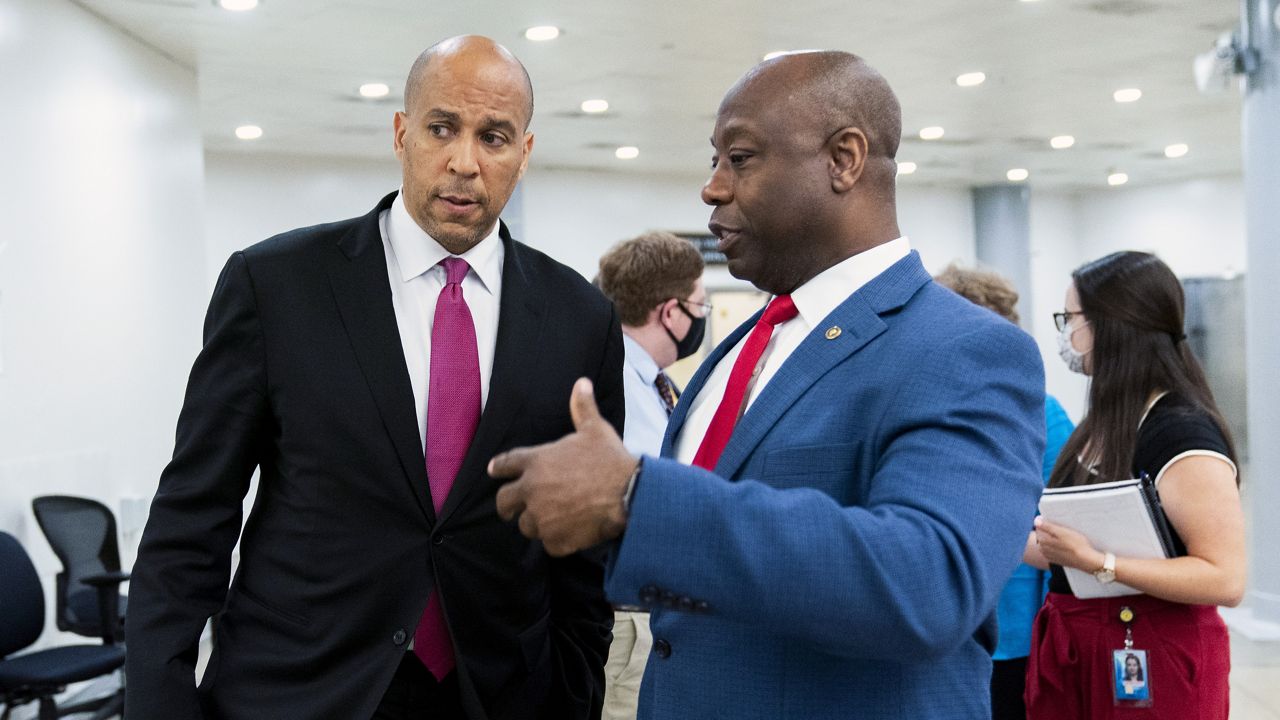After months and months of negotiations, attempts to come up with a bipartisan agreement on a sweeping police reform bill in Congress have failed, according to New Jersey Sen. Cory Booker, one of the key negotiators.
The news was first reported by the Wall Street Journal.
Booker said that after months of attempting to reach an agreement with Republican Sen. Tim Scott of South Carolina and Rep. Karen Bass of California, the two sides were unable to come to an agreement.
"After months of exhausting every possible pathway to a bipartisan deal, it remains out of reach right now, even after working collaboratively with and securing the support of policing groups like the Fraternal Order of Police and International Association of Chiefs of Police for our proposals," Booker wrote in a statement.
"Unfortunately, even with this law enforcement support and further compromises we offered, there was still too wide a gulf with our negotiating partners and we faced significant obstacles to securing a bipartisan deal," Booker continued, adding: "The time has come to explore all other options to achieve meaningful and common sense policing reform."
The Democratic-controlled House approved a sweeping measure in March which has stalled in the evenly divided Senate. Last year, Democrats derailed a Senate GOP bill they said was too timid.
This spring, President Joe Biden pumped momentum into talks with a nationally televised address telling Congress to “get it done” by May 25, the anniversary of a Minneapolis police officer’s murder of George Floyd, which sparked worldwide protests about policing and racism.
Negotiators did not meet that deadline, nor did they meet the "June or bust" goal once set by Sen. Scott.
Booker, Bass and Scott were hopeful that a deal could be reached, but complicated issues like qualified immunity, which protects police officers from being sued in civil court, kept a deal out of reach.
"The talks are over. We did the best we could," Bass told reporters Wednesday. "It wasn't like there was a big fight. It wasn't like there was a big rupture. But at a certain point, you have to recognize that you're just spinning your wheels."
White House press secretary Jen Psaki said later Wedneday that President Biden is "disappointed" about talks breaking down.
Scott, too, said that he was "deeply disappointed" in a statement, but blasted Democrats, claiming that they "squandered a crucial opportunity to implement meaningful reform to make our neighborhoods safer and mend the tenuous relationship between law enforcement and communities of color."
"Crime will continue to increase while safety decreases, and more officers are going to walk away from the force because my negotiating partners walked away from the table," Scott wrote.
"The areas where we agreed — banning chokeholds, limiting the transfer of military equipment, increased mental health resources, and more — would have brought justice to these families," Scott continued. "I’ve also heard from police and sheriffs groups who supported the work we were doing to provide more resources to implement better training, standards, and accountability for departments."
Booker pledged to keep working to enact meaningful police reform: "I will not stop fighting until we achieve change that keeps our communities and police officers safe."
Scott also said that he "will continue to work with anyone who is serious about finding bipartisan solutions that bring justice, fairness, and safety for the most vulnerable among us."
The Associated Press contributed to this report.



